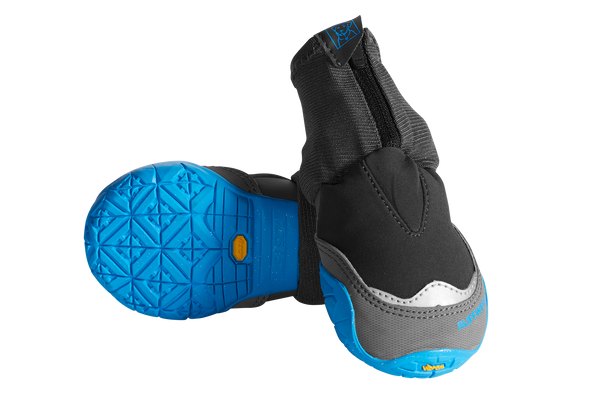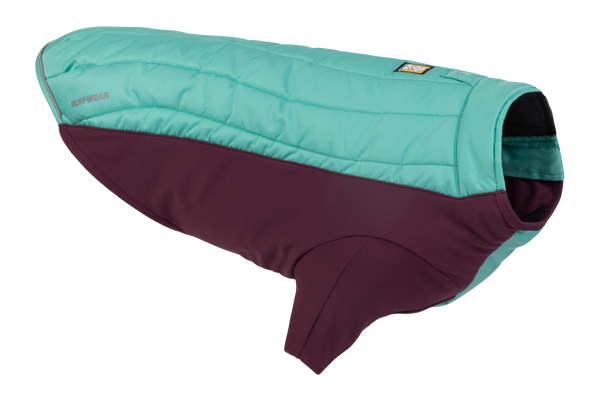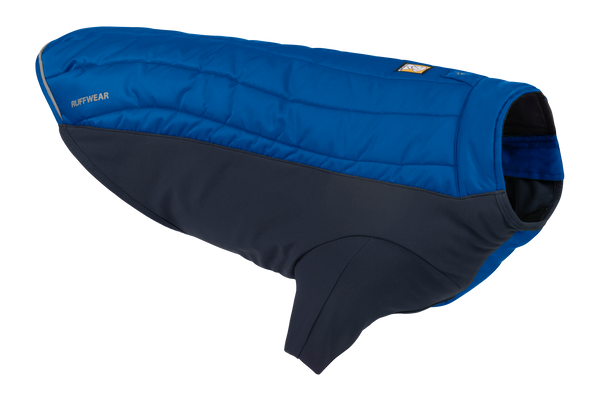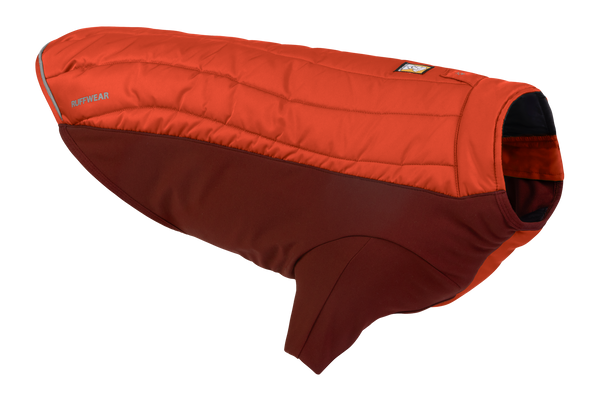Behind the Design: Pacific Gnaw-west Toys
We checked in with Ruffwear Founder, Patrick Kruse, and design team members, Timothy Gorbold and Liz Zarro, to get the scoop on the inspiration behind the Pacific Gnaw-west Toy Collection.
Ruffwear designers Timothy, Liz, and Colin scoured the pine-covered paths of Bend’s Skyliner Trail. They were on the hunt for sticks – jagged, gnarled, bent, twisted – chewable, fetchable. Think like a dog, they thought to themselves. They channeled their pups’ eager sniffs and playful curiosity – which stick is the most fun?
What might seem like an unconventional team-building scavenger hunt was actually part of the design process. They were on the job, collecting samples to inspire a new line of toys: the Pacific Gnaw-west Collection.
The year was 2016. We’d played with designing a few toys over the years, and with each new development came valuable lessons learned: how to balance wall thickness and durability with a chewable feel, how to create air flow with two holes instead of one, and how to boost engagement with an erratic bounce.
And, even as we fine-tuned our toys, we still saw an opportunity to dream up a cohesive toy line – one designed as a set with a story.

Inspiration Strikes
When Timothy, Product Innovation & Engineering Manager, joined Ruffwear in 2016, he jumped right into leading the project. As the team brainstormed, Timothy had an idea – let’s focus on three of our dogs’ most favorite things: sticks, stones, and pinecones.
It felt like a natural fit. After all, how many times had we seen our dogs bound through the trees with a massive stick, parading their treasure with pride? Or pounce on that perfect pinecone, begging us to throw it again (and again)? Timothy reflected on his dog Quinn’s love of diving for rocks in the lake. And what better place to offer inspiration than the region of Ruffwear’s headquarters: the Pacific Northwest.
Choosing a Renewable Resource
When deciding the type of material for the Pacific Gnaw-west Collection, natural latex rubber was an easy choice. Ruffwear’s Founder, Patrick, was drawn to natural latex rubber because it comes from trees and is a renewable resource. The rubber trees produce for about 30 years and at the end of their lifespan, the trees are harvested locally in Malaysia and Vietnam. They are then used for firing roofing tile kilns, completing a cycle.

Sculpt, Play, Refine
Idea, check. Material, check. Now the question was, how do we make it engaging for dogs?
To get a sense of the shape, size, and feel of the toys, the design team gathered to sculpt possible designs. Timothy reflects, “It’s a really fun journey, and it’s all very collaborative. We showed up with different concepts, models, and sculptures. A bunch of us sat around and played with clay.”
As they kneaded and molded, they began to discuss: how can these lumps of rubber turn into three distinct toys, each with their own set of unique characteristics and personalities? Each toy needed to live up to the legacy of its natural counterpart.
Tapping into their inner dog again, the team narrowed it down to three personalities for each toy:
- Gnawt-a-Stick™: fetch, tug, float
- Gnawt-a-Rock™: nuzzle, flop, treat
- Gnawt-a-Cone™: huck, bounce, and gnaw

Our goal was to not just mimic our dogs’ favorite features of natural sticks, stones, and pinecones, but to elevate them, too. Could we make the toys just as exciting with more longevity than a stick that splinters or a pinecone that shreds?
Patrick enjoyed working through that puzzle – making toys that last without sacrificing the fun:
“The most fascinating part of the process for me has been homing in on that engaging toy. Finding the right durometer {hardness} and wall thickness that still allows the dog to truly engage. If you make the toy too durable and not interesting, dogs will shy away from something they don’t think they can make headway on.”
After testing (read: lots of dogs playing with lots of toys … a tough job indeed), refining, and working closely with our factory, we found that sweet spot.
A Modern Twist on the Original
Some brands go literal with product design, while others look to the world for creative inspiration. We chose the latter. In 2016, a new look was popping up in clothing, technology, and more. It was a modern, geometric aesthetic with slightly rounded, faceted shapes.
Diving into market research, the team discovered this faceted look in a climbing nut, the insulation cells of a North Face jacket, and a Bluetooth speaker. They were drawn to the elements of interest and dimension this look would add to our toys.

We’re fortunate to have a close-knit relationship with our factory in Vietnam. Each step of the way, we collaborate with our factory partners, making joint decisions to refine our designs. The design team has even had the chance to visit the factory in-person, gaining an up-close and in-depth understanding of the manufacturing process.

We’ve Got New Colors
This Fall 2022, we have three new colors for the Pacific Gnaw-west Collection: Red Sumac, Lichen Green, and Blue Pool.
Liz, Senior Product Designer and Developer, was the project lead on these new colors:
“These colors offer something for everyone. If you're looking for visibility while playing fetch in a variety of environments, like Red Sumac in a grassy field or Lichen Green in the dirt, those colors function as visual aids, while the Blue Pool color provides depth and richness and fits well with many of our other Ruffwear products if color coordinating is your thing. The accent colors that we're using on these toys give them a playful feel and add even more depth to the intricate surface of these products.”
While machines and molds help shape the form of our toys, humans paint pops of color onto the rubber before it gets compression molded. It results in a unique look for each toy that's "baked" in and doesn't scratch off.
All That for a Toy?!
The design process from that initial spark of inspiration all the way to landing on the shelf is a long one. And the real moment of joy is when you and your pup connect over a play session with the toy for the first time.
Tip-tapping their feet as they chomp it, parading it around with a happy tail swoosh, bounding after its erratic bounce, or nuzzling and tugging it. That’s where the real magic happens. And that’s why we do what we do.














